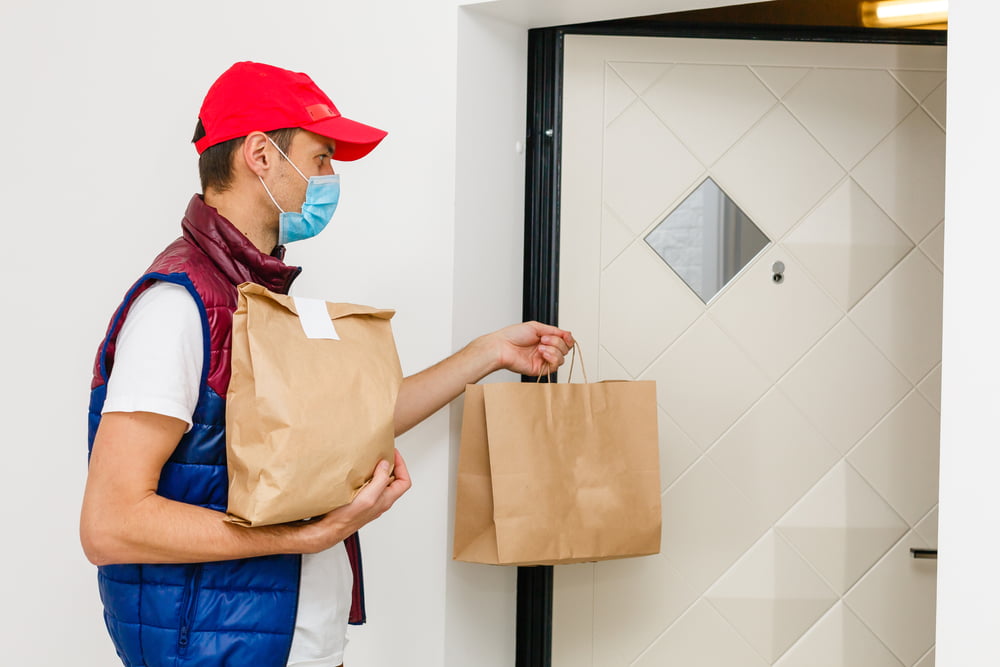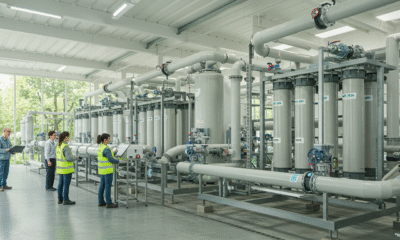

Editors Choice
6 Reasons Why Meal Delivery Services are Eco-Friendly
As we stated in the past, consumers are becoming more focused on sustainability these days. Almost everyone cares about eco-friendly products and services to some degree today.
Whether they are trying to move off-grid, secure planet-friendly backup power sources, or ensure their food supply has good credentials, it matters to consumers. Also, this is a growing requirement, especially for Generation X who are becoming a dominant force.
Convenience is paramount for busy professionals who want nutrient-dense meals delivered to save them time, while not sacrificing on eco-friendly choices or taste at the same time.
Here are 6 reasons why meal delivery services are eco-friendly compared to other options. They are a great example of an eco-friendly business idea for entrepreneurs.
Recyclable Packaging Materials
Food delivery services involve packaging up meals, so they’re easy to consume once they’re received.
While it’s impossible to completely minimize the packaging because the different ingredients often must be separated before cooking or reheating, the packaging itself can be recyclable. Some meals are already cooked and ready to reheat, which makes the packaging smaller. Also, it’s possible that the packaging was made from recycled materials that again can be recycled, which is even better for the planet.
Because eco-friendly packaging is so important, customers often select service providers partly based on the efforts that the business has made.
To better understand what’s possible with food delivery services, you can read review here. In this case, the review covers Freshly. They provide healthy, calorie-controlled meal deliveries of pre-cooked meals that require only three minutes to reheat. Their packaging is biodegradable, and often fully recyclable too.
Reduced Food Waste
Food waste is a major problem in the UK and elsewhere in the world.
While we purchase food intending to eat it on or before the best-before date, we don’t always manage to do so. According to the Waste and Resources Action Programme, over 9 million tonnes of food waste was created within the UK in 2018. Around 30% was inedible food parts, but more than two-thirds was pure waste.
Problems can happen at the grocery store due to poor buying decisions. Many impulse buys aren’t enjoyed later, and over-purchasing of food leads to considerable waste. Also, failing to plan meals correctly leads to further food waste.
By comparison, because meal delivery plans are portioned out, it’s a simple matter to get a weeks’ worth of meals delivered. There’s no overbuying or confusion over what to eat. Subsequently, there’s less waste too.
Lower Food Product Emissions & Energy Consumption
Carbon emissions are created both at the farm level in producing the food and its subsequent distribution and at the retail chain level. Research shows that food delivery services produce less carbon overall.
Also, energy is used for food refrigeration during transportation and also while the product sits on the retail shelf before a consumer purchases it. Then it is refrigerated again at home too. By contrast, meal delivery services can use fresher ingredients with meals ready to cook in minutes. This can effectively shorten the supply chain to the end consumer, using less energy in refrigeration from food production to consumption.
Optimized Food Access Efficiency
People making a separate supermarket trip in their car leads to a cumulative effect on carbon emissions and another environmental impact. This is why carpooling is seen as so eco-friendly.
When thinking about food delivery services, their routes are heavily controlled using sophisticated fleet management software to manage efficiency. Packages for consumers that live or work near each other are grouped. This maximises the amount of food that can be delivered while covering the shortest number of miles in a single delivery vehicle.
Now compare this to each consumer driving to the supermarket separately to purchase their food and then driving it home again. The latter is bad for the environment, even if they are driving a hybrid car.
Cooling is Better for the Environment Too
Meal kits are given cooling packs to keep them at the ideal temperature to prevent the meal from spoiling before it reaches its destination. These packs are efficiently sized and have a minimal environmental impact.
Refrigerated trucks used by supermarkets to move food around are far less eco-friendly and there are potentially more emissions from the refrigeration process too.
Overbuying When Having the Time to Do So
When consumers are not in the supermarket as often, there are far fewer opportunities to wastefully purchase goods that aren’t required.
Plenty of research goes into exactly how to organise the layout at the supermarket to increase the average purchase value per customer. This leads to the knock-on effect of poor purchase decisions, and fewer of these products being used or needed, thus ending up in a landfill later. This is terrible for the environment.
While we obviously think of food waste in terms over-purchasing, that’s only the beginning. Supermarkets sell many other non-food-related products too. So, it stands to reason that when a consumer is not visiting as often because their meals are planned and delivered, the temptation to buy is substantially reduced.
There are many direct and indirect reasons why food delivery services tick eco-friendly boxes. It’s not any single thing but the accumulation of many factors that contribute to making them far better for the planet than traditional choices.


 Environment12 months ago
Environment12 months agoAre Polymer Banknotes: an Eco-Friendly Trend or a Groundswell?

 Features11 months ago
Features11 months agoEco-Friendly Cryptocurrencies: Sustainable Investment Choices

 Features12 months ago
Features12 months agoEco-Friendly Crypto Traders Must Find the Right Exchange

 Energy11 months ago
Energy11 months agoThe Growing Role of Solar Panels in Ireland’s Energy Future



























